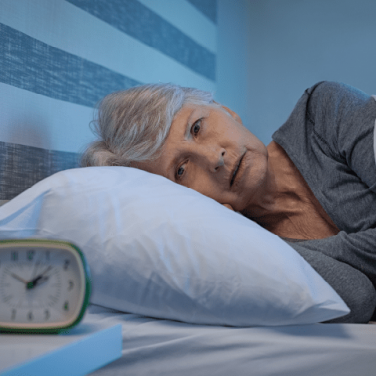Lewy Body Disease (LBD), a neurodegenerative disorder, not only affects daytime activities but also casts its influence into the realm of sleep, presenting unique challenges for individuals grappling with this condition. Let's delve into how Lewy Body Disease impacts sleep patterns and explore potential strategies to enhance overall sleep quality.
1. Insomnia:
Insomnia, characterized by difficulty falling asleep or staying asleep, is a common sleep disturbance in LBD. Individuals may find themselves restless during the night, leading to disrupted sleep patterns and daytime fatigue. Addressing environmental factors, establishing a consistent sleep routine, and consulting healthcare professionals for tailored interventions can help manage insomnia.
2. Excessive daytime sleepiness:
On the flip side, some individuals with LBD experience excessive daytime sleepiness. This can be attributed to the fragmented sleep at night or the impact of the disease on the regulation of sleep-wake cycles. Encouraging regular physical activity, maintaining a healthy diet, and establishing a balance between activity and rest can contribute to improved wakefulness during the day.
3. REM Sleep Behavior Disorder (RBD):
LBD is often associated with REM Sleep Behavior Disorder, where individuals physically act out their dreams during the rapid eye movement (REM) phase of sleep. This can lead to potential injury and disrupt the sleep of both the individual and their sleep partner. Safety measures, such as padding the sleep environment and considering medication options, may be recommended to manage RBD.
4. Circadian rhythm disturbances:
The circadian rhythm, the body's internal clock that regulates sleep-wake cycles, can be disrupted in individuals with LBD. This may result in irregular sleep patterns, making it challenging to maintain a consistent sleep schedule. Strategies such as exposure to natural light during the day and creating a conducive sleep environment can assist in regulating circadian rhythms.
5. Nighttime hallucinations:
Visual hallucinations, a common feature of LBD, can extend into the nighttime, contributing to disturbed sleep. Creating a calming sleep environment, minimizing stimuli before bedtime, and consulting with healthcare professionals for appropriate medications can be part of managing hallucinations affecting sleep.
6. Caregiver considerations:
Sleep disturbances in individuals with LBD also impact caregivers, who may experience interrupted sleep patterns. Establishing a support system, considering respite care, and communicating with healthcare professionals about caregiver well-being are crucial components of holistic care.
Lewy Body Disease's impact on sleep patterns requires a nuanced approach that considers both the individual's needs and the challenges faced by caregivers. By understanding the specific sleep disturbances associated with LBD and implementing targeted strategies, individuals and their caregivers can work towards improving sleep quality and enhancing overall well-being, contributing to a more restful night and more vibrant days.
Nursing Home Plus is here to help you choose a care home or facility best suited to your needs. Do not hesitate to contact us on the following number: 0230 608 0055 or fill out this form.

